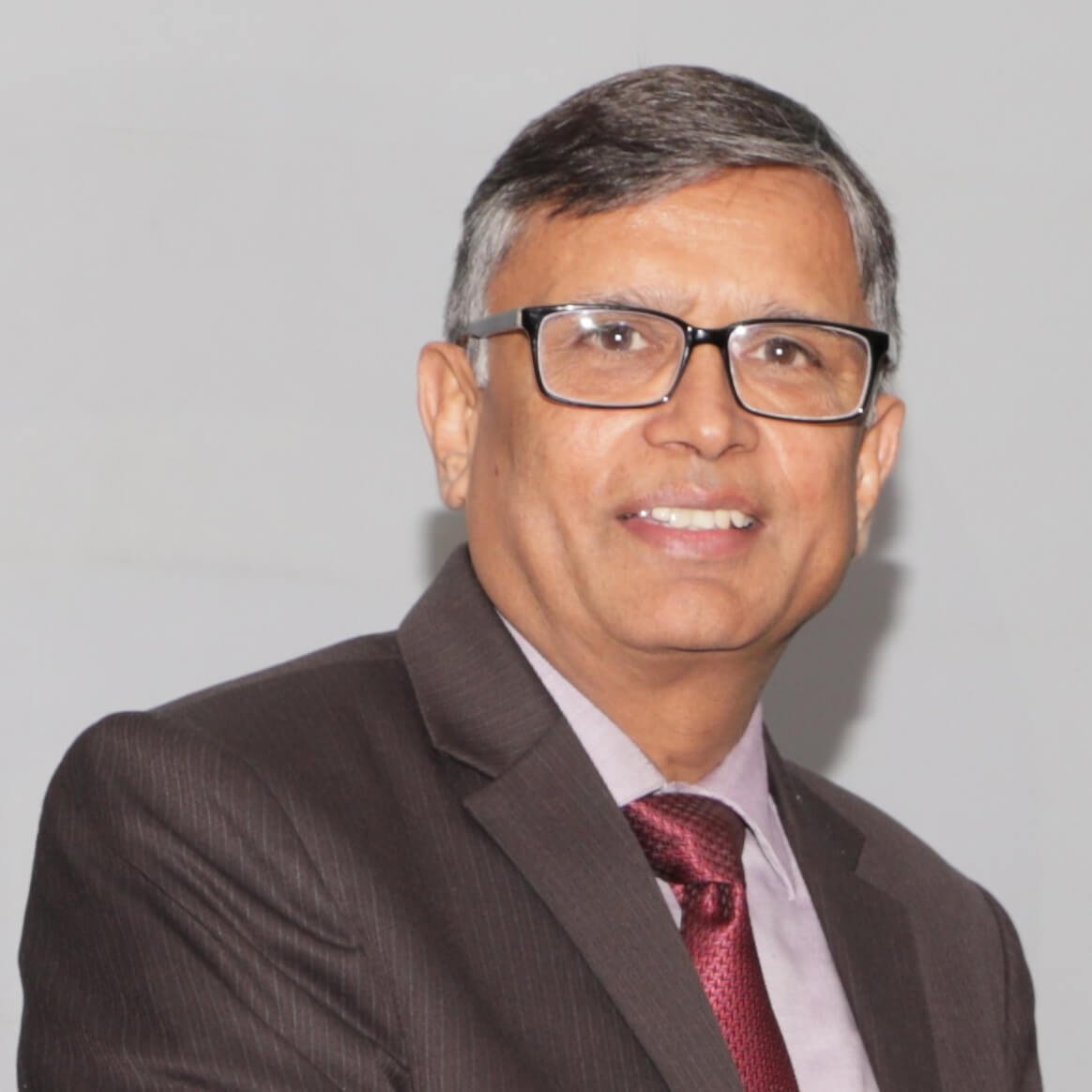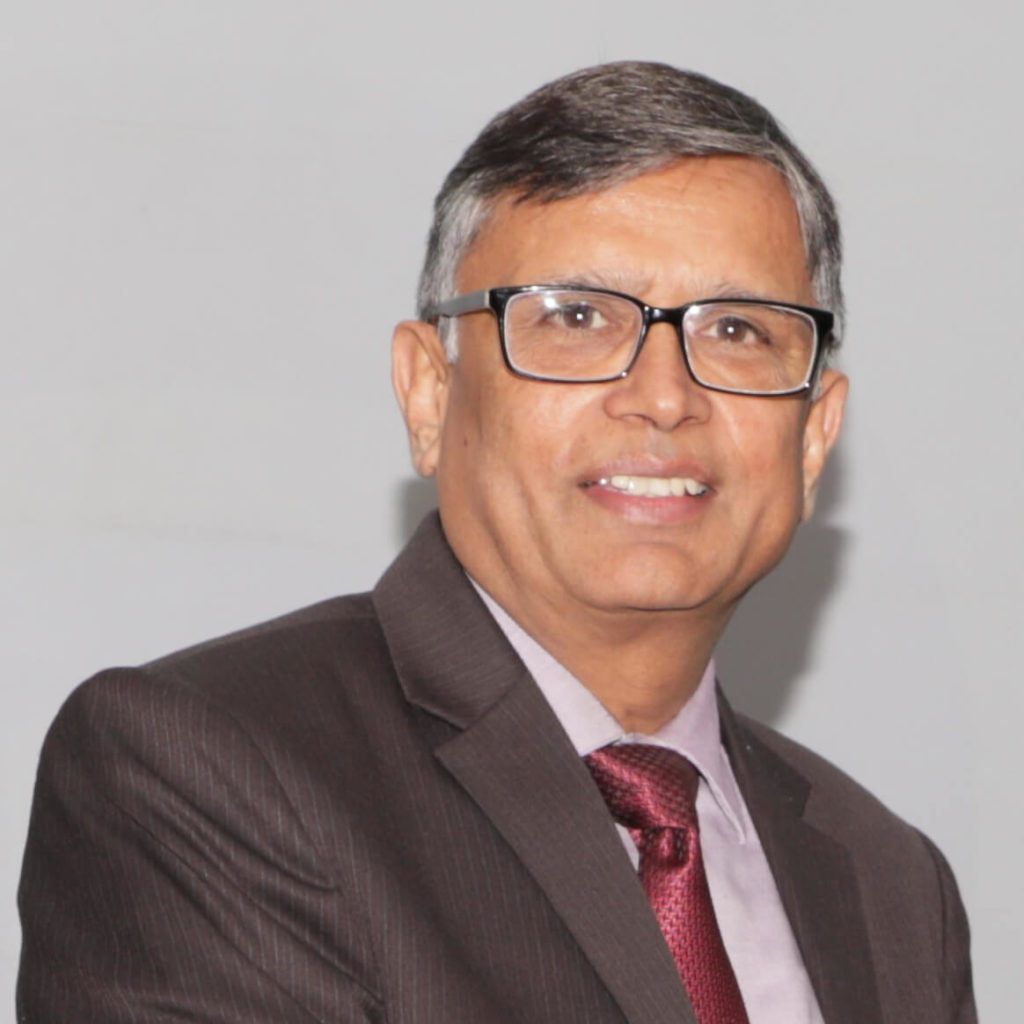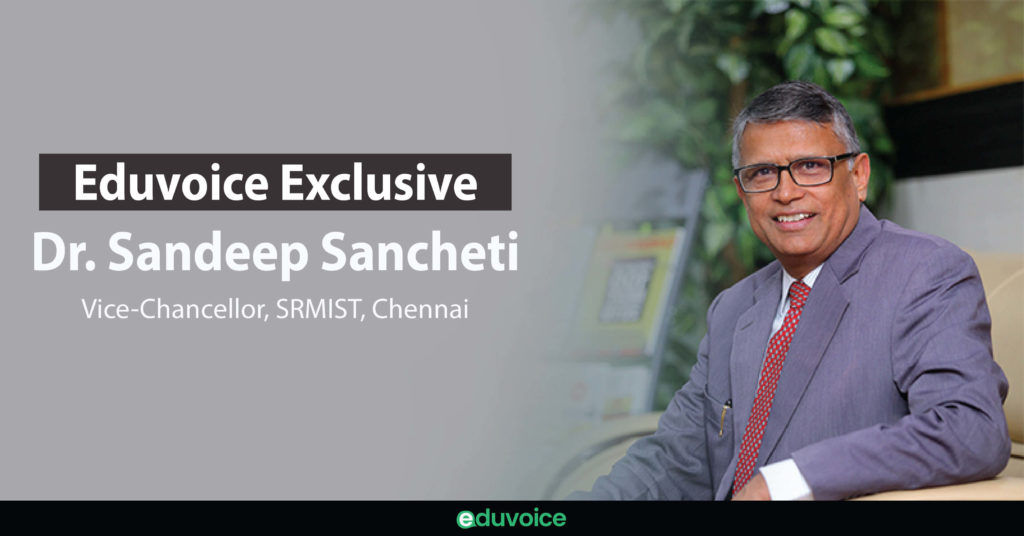Eduvoice exclusive interview

Dr. Sandeep Sancheti
- Vice Chancellor, SRMIST, Chennai
- Past President of Association of Indian Universities and Manipal University Jaipur
- Former Director National Institute of Technology – NIT Delhi and NITK Surathkal
- Former Visiting Faculty, AIT Bangkok
- Former Member Academic Advisory Committee Microsoft (India)
- Former Member (Visitor’s Nominee) Distance Education Council (DEC) of India
“It’s commendable to see how rapidly the entire Indian Education System has evolved to answer the urgent call for change. This reveals that once a target is set for us, we are extremely good at working to achieve it.”– Dr. Sandeep Sancheti
introduction
The current COVID situation has shaken the entire nation to its core and is not coming to a halt anytime soon. But still, every dark cloud has a silver lining in it and so does this situation. A lot of new openings and opportunities are on the rise in the current testing times as well.
It’s a well-known saying that “Nothing is more expensive than a missed opportunity” and looking at the current scenario, the Educational Institutions should train their students accordingly so that they can pounce on an opportunity if they come across one. To achieve some concrete results, the educationists need to evolve and make innovative changes in the policies of the current education system.
To learn more about such innovative steps, I had a fruitful and enlightened conversation with Dr. Sandeep Sancheti, who is Vice-Chancellor at SRM IST Chennai.
Let us have a look at the views of Mr. Sancheti about the current times and his thoughts on new opportunities being created in the current scenario.

Sujata Mehta
“Be vocal about local” is the slogan that our Hon’ble Prime Minister is promoting. Do you think the post-COVID era will be having more opportunities for students who wish to run their start-ups and their businesses?
Also, I would like to understand that will the coming times be able to nurture a good eco-system for startup development and how can educational institutions help them?

Dr. Sandeep Sancheti
Every tough or defining condition makes an impact on our status of functioning. 15-20 years ago, the word Entrepreneurship was not known in the education system. When this term started coming to light, we thought that it could be taught as a subject and some of us realized that it should be supported as well as incubated and invested upon.
Therefore the models of equity and third party interventions came forth and venture capitalists started these initiatives but only recently we have realized that innovation and design thinking is the need of the hour which is required much more than equity.
In my strong opinion, if an enterprise lacks innovation then the chances of it succeeding are very low. Innovation is the bedrock of the new generation entrepreneurship. The COVID situation has given us a new point of self-belief.
Today, we have all realized that we are good researchers and capable innovators as well. Take this COVID situation for an instance, right after the outbreak there must be at least 100 institutions that have developed 100 different shields, masks, and ventilators. At least 2 dozen agencies are aggressively working on creating vaccines.
“Suddenly, Indian educational institutions have woken up to answer this call. So, once a target is given, we are extremely good at working over it.”
The Atal Incubation Mission, for example, is working very aggressively in terms of providing incubation and innovation facilities in the higher education system. Their numbers are in thousands, they are very supportive and are also setting the right tone.
Here at SRM IST, we have also come up with some unique models. Like every year we send several students, about 20 of them, for a semester abroad under the Students Abroad Program to the University of California, Berkley. It is a very well-known institution, and maybe Silicon Valley’s mainstay in terms of start-ups.
At such places, the students innovate and also get to incubate their ideas and startups. We were surprised to see that once the Coronavirus outbreak took place, one of the first few mobile apps that were developed from their side was done by one of our best students who were under the Student Abroad Program in Berkley. So, this is the kind of potential that our students have and with directed efforts, we assist them in realizing it.
The other special thing we do at the SRM IST is that from the early semesters itself, we teach and promote entrepreneurship as a domain.
In the 7th semester, we nurture students’ ideas, seed them, and give them whatever establishment support is needed. While in the 8th semester, they do all the work under their entrepreneurship effort as a part of their final year project. During this semester they are not required to study theoretical subjects or give any regular examinations.
However, one cannot say for sure if in the given time frame their entrepreneurship effort will become successful or not. Even if in the end they do not succeed in achieving the targets but if their efforts are good, their efforts are properly considered for final year project assessment and are awarded the degrees.
They are also allowed for deferred on-campus placement opportunities along with the next batch of students if they so wish. We at SRMIST strongly advise our students to shape up their dreams of entrepreneurship while they are with us, explore it as much as possible, execute their plans, and satisfy their quest by attempting it early, particularly until the age of 25 years.
It is a well-known fact that everyone does not succeed but we give them a better chance and promote their self-belief. This approach helps them lay right ground conditions, learn new ways to become “Aatma Nirbhar” [Self-dependent] and have a better perspective of life and things they can do.
SUBSCRIBE TO OUR NEWSLETTER
Get latest updates about our Exclusive Interviews, News, Articles on Higher Education Sector.

Sujata Mehta
If I see pan India, there are very few institutes that are doing this. What are your suggestions for other institutes and how can they support as well as promote these activities? Also, how can we support the students mentally and financially at this time?

dr. sandeep sancheti
Many of our institutes do not have full control or abilities to decide their destiny. In simple words, they do not have adequate autonomy or will decide what they want to do. So they are in a routine of delivering basic education and taking exams etc.
Anything like an important add-on or support activity is generally out of their course and they don’t have systems, finances, or people for that. The same applies to students as well; many of them are purely degree centric rather than focusing on a long term career. They think that the degree will get them a job and will secure their life.
My first suggestion would be to empower the institution, allow them to choose their destiny, give them autonomy to make the decisions, and stop spoon-feeding.
Yes, it may lead to some other types of challenges but we should make them learn by doing and become self-reliant. I would go further to the extent of tolerating such mistakes or failures provided their planning and efforts were genuine. What one is attempting may not be perfect, but if it can be justified in a given set of conditions, it should be allowed.
I will support it with an example. We had some students of the final year who were doing brilliantly after 3rd year. So, the top industries/startups required them for one full year for the project ultimately leading to their placements as well. In addition to the pre-placement offer, it was a great opportunity for our students to work on defining projects.
Therefore, using the autonomy and powers vested in our system, we created a new model for them to continue their studies as well as help the industry.
To deal with such or similar situations or requests, we have followed an unwritten rule in the institutions where I have worked. It is about to not to turn down an internship or any other special opportunity for our students without bringing it to notice of top authorities like Director or Vice-Chancellor so that wherever possible institutions can help create a new model to resolve it.
For instance, we had a blade runner in one of my institutions. A blade runner is a para-athlete; someone who had their leg amputated and yet competes in para-sports. The blade runner’s blade broke after some time after admission while we were still looking for some good results from his performances.
The replacement cost was around Rs 3 to 4 lacs, and his request for the purchase of a new blade was being pushed from one person to another within the system with a poor likelihood of expected support.
The matter came to my notice by some chance and I ended up calling a meeting. I asked my team, why is it being turned down?
As expected, I got the standard answer that this kind of investment will not be beneficial to us.
As a normal academic or institutional head, I might have accepted that but I decided to challenge them.
Asked them why won’t we research on designing and developing such devices or gadgets as it can be very handy for many people suffering from disabilities?
Why shouldn’t be our research focused to bring at least some developments and products which are of direct use to the neediest of society?
In the end, as a result of our soul searching, in-principle approval was granted for starting a new project along with the purchase of new blade since we had the resources and capacity to research on blade development with our existing faculty/students working in domains of materials, mechanical and manufacturing.
In entrepreneurship promotion, when it comes to finances, the challenges are a little bit more in academic world, because most of the people who are involved in innovation are not necessarily experts in the domain of finance. They may have money, but not the adequate knowledge of the business domain as well as financial management.
But ultimately the financial viability or model is what makes a project successful or unsuccessful. The project cost, cash flow, the equity participation, etc. are critical for initial survival. The venture capitalists end up giving lakhs of rupees for the bright idea and take large amount of stakes in the project. If the idea or effort becomes successful, the VC gets the real dividend and the innovator gets very little and later sometimes gets shunted out. Of course, there are always a few exceptional cases.
As an institute, what we can do is to provide them seed grants to initiate and support them during prototyping/validation of their ideas and also during the initial phase of incubation. With due diligence, the institutions should also take some calculated risks while doing so to promote self-confidence of likely entrepreneurs.
Therefore, in a very free manner, the potential entrepreneurs can examine, assess and come to a level to know if their idea is good or bad. Finally, when they are likely to start their enterprise in a real sense, once again some equity with a small stake of 2-5% should be offered.
At present, a large number of ideas are getting buried under other things right at infancy and we don’t want that to happen. We should focus on how to nurture the ideas for at least one to two years in our institutions. Accordingly, we should make mechanisms to support and promote it through technical support, financial support, tolerance for time or extension, and space, etc.

Sujata Mehta
As per a report of BARC, we have seen a 30% increase in the usage of educational apps these days. We know that this is because of the pandemic but do you think these apps are sufficient and effective for learning?

dr. sandeep sancheti
At times when there are situations that are challenging, we know that something is better than nothing. We shouldn’t wait for a perfect world, because it doesn’t exist now and it won’t be there in future as well. So, in the present time, we should accept online learning, e-learning and explore newer methods
Three months ago, we used to more or less disregard online education, and discard it, thinking it is substandard. We didn’t appreciate the people who did virtual learning but today, the situation has changed, and it is a complete phase shift of 180 degrees. So, the context of the situation decides what is correct and how it is to be delivered.
Right now in some parts of the developed world, even if you wish to come to classes in the ensuing semesters of the academic year 2020-21, Universities like Cambridge and few others, you are not offered the physical or offline mode, no matter how much tuition fee you are ready to pay.
A few days back, I attended a webinar where we came to know from a student survey result that 66% of large nos. of the students who responded, continue to desire that they will like to continue their mode of teaching as contact or offline mode. Another 20% said that they haven’t decided yet, and another 14% said that they are ready for mixed-mode.
People are continuing their legacy systems, and there is no harm in it but it is important to understand that today’s education has to have multiple modes of teaching-learning. Gone are the days when you would sit in front of a teacher in a Gurukul or a School and he would deliver the content which may make you survive for a work-life of 30-40 years. Now you need to recharge yourself every few years and develop abilities of self-learning.
In addition to their preferred form of education, the students should access and learn through many e-learning platforms from wherever they wish, be it the university, their homes, their hostel rooms etc. What matters is the engagement from the student’s side and desire to learn as well as go an extra bit to succeed.
I am a big advocate of use of technology because in long run it cuts the cost, makes itself Omnipresent and generally provides level playing field to all irrespective of caste, creed, location, nationality etc.
Big technology examples impacting masses in 21st century are computers, mobiles, internet, solar energy, LED lights, electric vehicles and many more. Even this interview is being conducted online! So technology would also have a similar or lasting impact on education from now on.
In addition to their preferred form of education, the students should access and learn through many e-learning platforms from wherever they wish, be it the university, their homes, their hostel rooms etc. What matters is the engagement from the student’s side and desire to learn as well as go an extra bit to succeed.
I am a big advocate of use of technology because in long run it cuts the cost, makes itself Omnipresent and generally provides level playing field to all irrespective of caste, creed, location, nationality etc.
Big technology examples impacting masses in 21st century are computers, mobiles, internet, solar energy, LED lights, electric vehicles and many more. Even this interview is being conducted online! So technology would also have a similar or lasting impact on education from now on.
“You don’t just survive with the information or knowledge these days because it is available in abundance or can be tapped easily. What is needed more is wisdom, foresight, intuition, etc. All of these cannot be delivered easily in a conventional classroom setting. You need to learn them from every situation you face in your life. Hence the entire space of your co-curricular and extracurricular activities be it – sports, professional clubs, and societies, leadership, entrepreneurship, social service, innovation, research, etc. also become your classroom or learning centers.”

Sujata Mehta
Many universities in Kerala are conducting exams, but the colleges of Maharashtra are not conducting exams. So what is your opinion on the conduction of exams in this situation?







